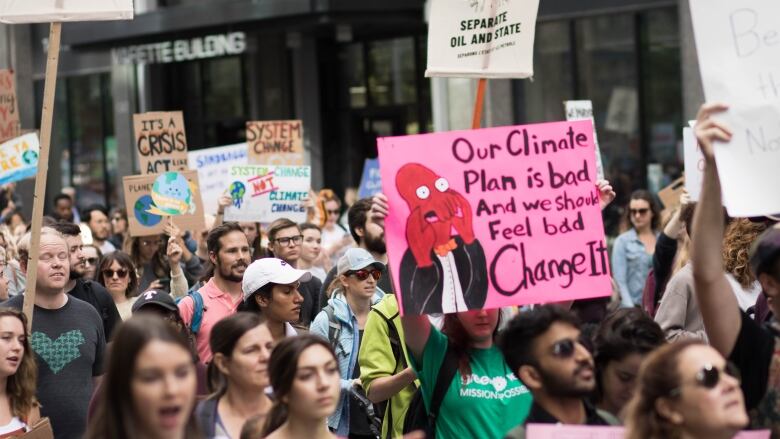Last month marked the 26th annual Conference of Parties (COP), a United Nations conference of over 200 countries dedicated to reducing global carbon emissions. This year’s COP was held from October 31 to November 12 in Glasgow, Scotland, where after two weeks of negotiations, participating countries agreed to produce more ambitious plans to reduce emissions by next year’s conference. The deal also calls for wealthy countries to extend increased financial aid to vulnerable nations.
Critics of the conference mounted a counter-demonstration in Glasgow. The group, named the People’s Summit for Climate Justice, along with other prominent climate activists such as Greta Thunberg, argued that climate summits such as COP have generally failed to amount to meaningful policy action, nor are their goals ambitious enough to meet the scope of the looming climate disaster. In an open letter prior to the conference, Thunberg and three other prominent youth climate activists demanded that world leaders, “Keep the precious goal of 1.5°C alive with immediate, drastic, annual emission reductions unlike anything the world has ever seen.”
This 1.5 degree target was a key aspect of the historic Paris Agreement produced during COP21, where participating countries pledged to collectively limit the global temperature increase to 2 degrees Celsius this century, with the ultimate goal of limiting the increase to 1.5 degrees. Under this framework, every five years each country submits a Nationally Determined Contribution in which it outlines its plan to reduce emissions. However, as skeptics of the agreement and COP’s utility more generally point out, without any consequences for failing to meet these climate goals, these emissions targets are little more than empty posturing. And while bleak, these activist’s fears are born out in the data: According to a report from Climate Action Tracker, so far only 1 country out of 35 is set to meet the 1.5 degree reduction target. Even though this year’s deal calls upon nations to reduce emissions even further, Brown Professor of Environmental Studies Timmons Roberts has called the deal’s language “wiggle words,” a nod to rich countries’ ability to effectively back out of these promises.
Global agreements such as those produced under COP assume that peer pressure among nations will incentivize each country to meet their avowed climate goals. This model of volunteerism didn’t come about by accident: The 1997 Kyoto Protocol, one of the world’s first large-scale agreements to collectively reduce carbon emissions, did in fact include mandatory targets. However, several fossil-fuel-backed organizations, such as the Global Climate Coalition, were able to successfully lobby then-President Bush to withdraw the United States from this agreement due to its binding nature.
Ironically, this voluntary model mimics domestic approaches to climate change. With relative inaction on the part of the government, as demonstrated by the Senate’s current disheartening climate negotiations, consumers have largely taken it upon themselves to reduce their own environmental impact. Michele Micheletti and Dietlind Stolle have deemed this phenomenon “sustainable citizenship.” The fossil fuel industry has similarly pushed this consumer-focused model in domestic markets. In fact, it was BP that first coined the term “carbon footprint” in 2000—conveniently shifting the climate responsibility from one of the world’s leading polluters onto individual consumers driving their cars to and from work.
Whether it be reducing meat consumption or limiting energy usage, the science shows us that consumers will need to make individual changes in order to stop climate change. The question is not about the nature of these goals specifically, but rather how we go about implementing them. And relying on individuals to take up these climate burdens themselves without any direct incentive to do so leads to an inevitable collective action problem. The same is unfortunately true on the global scale.
“Curbing climate change is, in the most fundamental sense, not about innovating technology or changing morality. It’s about moving money,” Jeffrey Ball, scholar in residence at Stanford University’s Steyer-Taylor Center for Energy Policy and Finance, wrote in the New York Times. However, as Ball points out, experts inside COP26 paint a less-than-idyllic picture of the ongoing negotiations, particularly when it comes to talks of extending aid to developing economies. According to a recent study, developing economies such as India and China are expected to produce the bulk of global carbon emissions throughout the next several decades. As it currently stands, operating coal and/or gas power plants remains the more economically efficient option in many of these countries—a gap that increased investments in renewable energy sources from wealthier countries could help mitigate. However, despite pledging to lend $100 billion in aid to these countries by 2020 to help make up this clean energy gap, richer countries have been dragging their feet.
The solution to climate change cannot be to keep large segments of the world’s population living in dire poverty. Not only is this unethical, but entirely impractical considering the nonbinding nature of these agreements. If we make it impossible for these nations to reach lower emissions targets without sacrificing transformative economic development, they will simply opt out altogether. This same paradigm is true domestically—for example, while it is impractical to ask someone working multiple minimum wage jobs to go “zero waste,” implementing city-wide composting programs can make individual waste reduction a viable option for those with little time and resources.
We must take seriously the notion that people—even those with ideological commitments to climate action—will realistically only respond to tangible incentives, whether it be in international climate agreements or as individual consumers. Ultimately, both domestically and abroad, this climate volunteerism is an unsustainable solution to the threat of climate change. Instead, we should seek to build economic and diplomatic frameworks that actively empower meaningful climate action by making it feasible on the system-wide level—it’s time to stop talking about climate action as an issue of courage, but one of ability. Then, it’s time to put our money where our mouth is.
